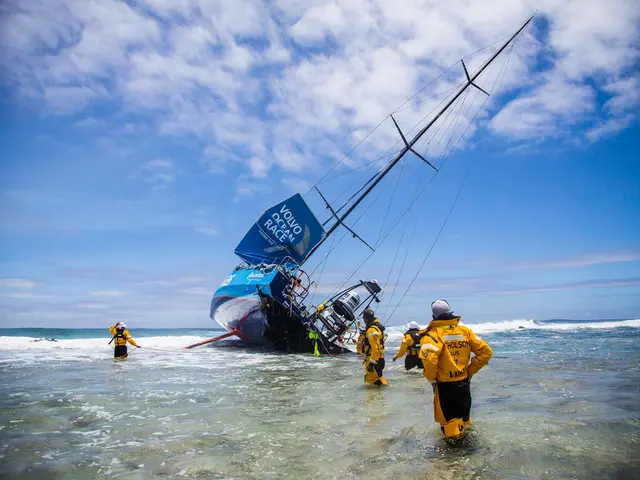Decreased price fluctuations, boosted accessibility, and reduced consumer demand for recycled PET in Europe
The European rPET market is gearing up for a more stable second half of the year, as recyclers anticipate a softening in feedstock bale costs throughout the rest of H2. This development is expected to improve margins for flake and pellet producers, providing a much-needed boost for the industry.
Meanwhile, the implementation of various policies and initiatives across Europe is set to drive growth in the rPET market. One such policy is the upcoming plastics tax in Italy, due to come into effect in July 2026. While the tax has been delayed multiple times, it could potentially encourage the use of recycled plastics and increase rPET demand.
In a similar vein, EU Member States may begin imposing penalties on brands who have failed to meet their SUPD (Single-Use Plastics Directive) targets. This move could stimulate demand for rPET, as brands scramble to meet their recycled content requirements.
Taxation could play a significant role in driving rPET demand, as more countries follow the lead of Spain and the UK in implementing taxes to encourage the use of recycled plastics. This trend could further boost the market, as recyclers see an increase in demand.
More countries implementing Deposit Return Schemes (DRS) is another factor that is expected to benefit the rPET market. As these schemes increase bottle collection rates and reduce contamination levels, they provide a steady stream of high-quality feedstocks for recyclers. Poland is due to implement its DRS before the end of the year, which may help reduce bale price volatility.
The Austrian DRS, launched in 2025, is already producing increasing volumes of bottles. This development, along with the expected implementation of DRS in other countries, is expected to provide a steady supply of rPET feedstocks in the coming years.
However, there are also challenges on the horizon. Brands with higher recycled content targets may reduce the volume of rPET purchased, potentially impacting demand outside of the expected seasonal slowdown in Q3 and Q4. This could put pressure on recyclers to find new markets for their rPET products.
Germany is taking steps to enforce the 25% rPET content requirement in beverage bottles as prescribed by the EU's Single-Use Plastics Directive and related retail regulations. The country has revised minimum standards by the Central Packaging Register (Zentrale Stelle Verpackungsregister) and is implementing extended producer responsibility systems from 2027 onwards. These measures are designed to ensure that brands meet their recycled content targets, but they could also impact the supply and demand dynamics of the rPET market.
As the European rPET market navigates these opportunities and challenges, recyclers remain optimistic about the future. The year has not delivered any unforeseen surprises and shocks, and the industry looks ahead to a more stable second half. With the implementation of various policies and initiatives, the rPET market is poised for growth, providing opportunities for both recyclers and brands alike.
Additional reporting by Helen McGeough and Carolina Perujo Holland.
Read also:
- United States tariffs pose a threat to India, necessitating the recruitment of adept negotiators or strategists, similar to those who had influenced Trump's decisions.
- Weekly happenings in the German Federal Parliament (Bundestag)
- Massive 8.8 earthquake hits off the coast of Russia's Kamchatka Peninsula, prompting Japan to issue a tsunami alert.
- Court petitions to reverse established decision on same-sex marriage legalization








